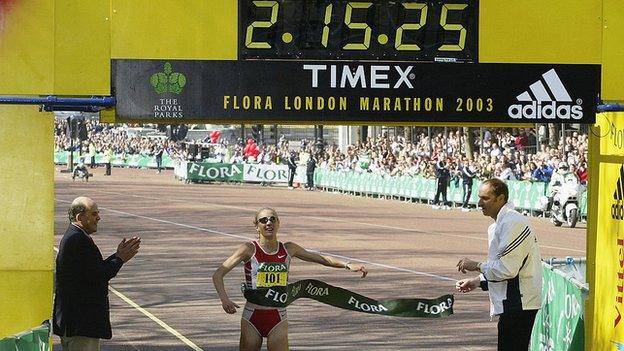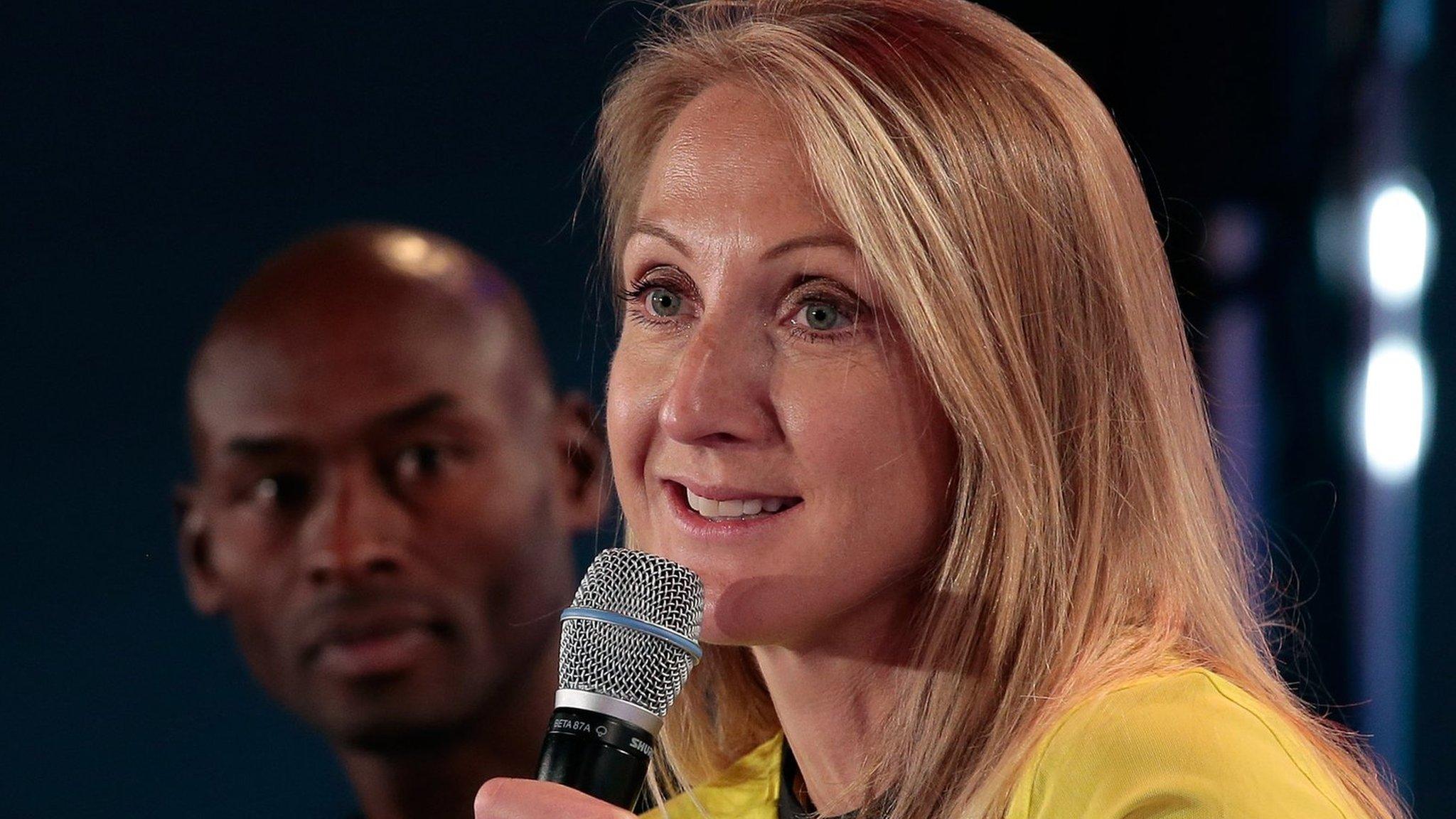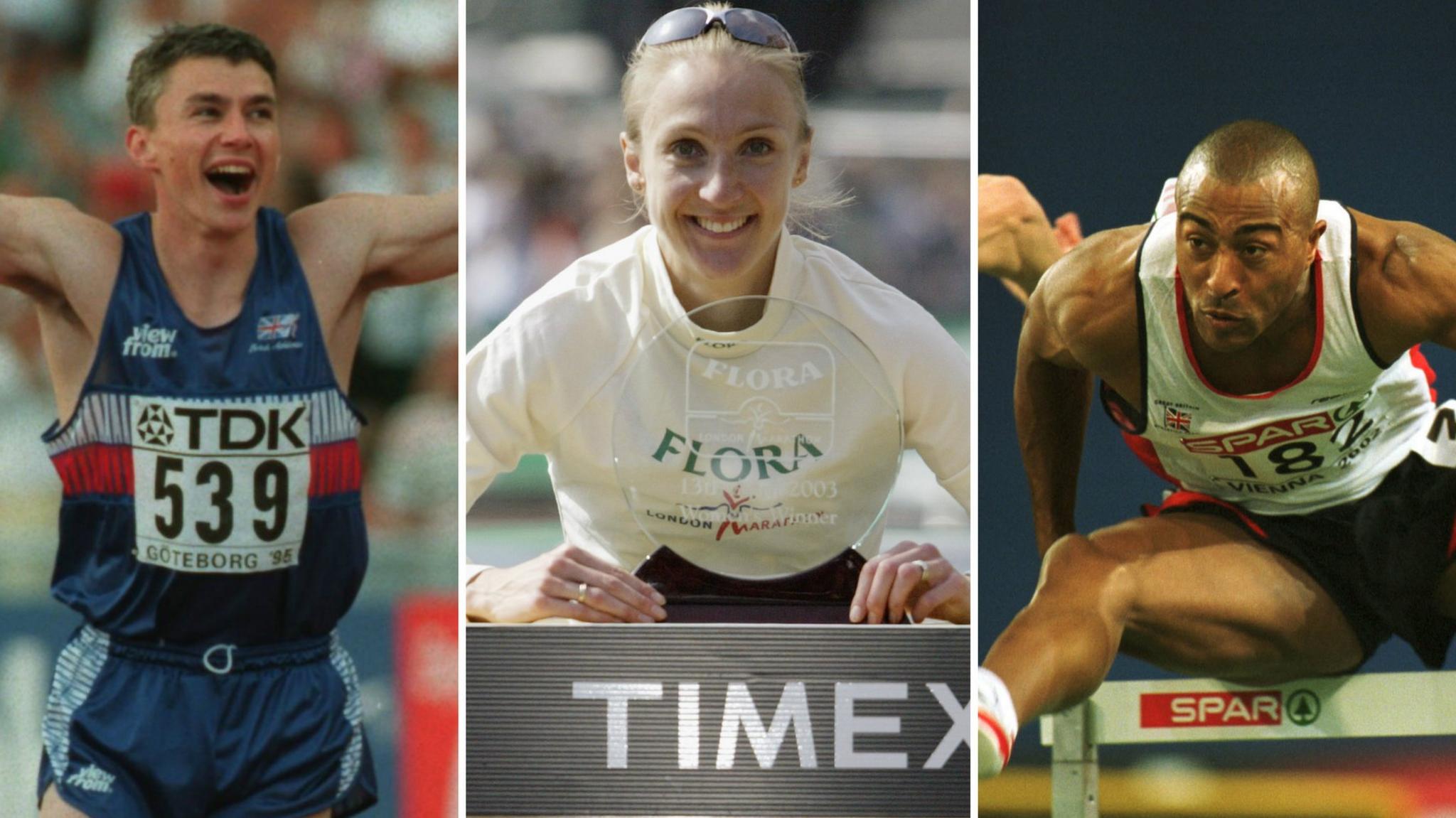Paula Radcliffe: Erasing world records would 'punish athletes twice'
- Published
- comments

Paula Radcliffe broke the marathon world record in London in 2003
Britain's marathon world record holder Paula Radcliffe says she was "very hurt and frustrated" at plans to erase athletics records set before 2005.
European Athletics wants historic records rewritten following the sport's doping scandal.
Outgoing UK Athletics chief Ed Warner said on Friday that he would back those plans if they were for "the good of the sport".
But Radcliffe says that would be "punishing athletes twice".
Speaking to BBC Breakfast following Warner's comments, the 43-year-old added: "You should never throw away the history and what the sport is built on".
"They [European Athletics] say you would be listed as a 'former record holder' and, for me, you become a former record holder when someone beats your time, not because the administrators decide to make it like that."
Radcliffe set the world record at the London Marathon in 2003 in a time of two hours 15 minutes 25 seconds.
"You're not going to give up things you've worked very very hard for without a fight, just in the name of it being for the good of the sport. I've had to race athletes cheating and then to lose records because of athletes who chose to cheat."
In January European Athletics set up a taskforce to look into the credibility of world records. The ruling council has now ratified the proposals put forward by the taskforce, and it wants the sport's world governing body, the International Association of Athletics Federations (IAAF), to adopt the changes it sets out.
One key proposal is that blood samples must be stored for 10 years after a record is set.
The IAAF has stored blood and urine samples only since 2005 and current records that do not meet the new criteria would remain on an "all-time list", but not be officially recognised as records.
This would also include Jonathan Edwards' triple jump record of 18.29m at the World Championships in 1995.
Britain's Colin Jackson would also lose his 1994 indoor 60m hurdles world record of 7.30 seconds under the proposals.
- Published23 June 2017

- Published2 May 2017

- Published3 March 2018
